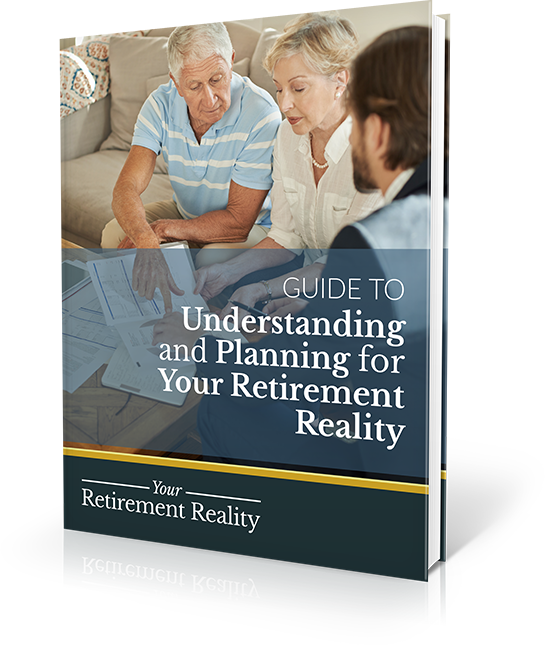3 Tips for Single Women to Retire Comfortably
The income gap between men and women has gotten much attention recently, especially with this being an election year. However, a disparity in income isn’t the only gap that women face. Single women may face greater retirement risks than their male counterparts.
According to a recent study from the National Institute on Retirement Security, women are 80 percent more likely than men to be living in poverty at age 65 and older. The numbers get worse with age. Single women age 75 to 79 are three times more likely to be in poverty than single men in the same age group.1
There are a number of reasons why women face these odds. One is the income gap and the very real fact that many women may earn, and thus save, less during their careers. Another challenge is that women generally live longer than men, forcing them to make their savings last for a greater period of time. Also, women may be more likely than men to financially support children or other loved ones.
If you’re a single woman, you may face challenges in retirement that single men and married couples don’t face. However, there are steps you can take to prepare and protect yourself. Below are a few tips on how to do so:
Maximize your guaranteed retirement income.*
One challenge that all single retirees face—both men and women—is that they miss out on the benefits of dual income. They don’t get to tap into a spouse’s Social Security benefits or retirement savings. They have only their own assets and income streams to support their lifestyle.
Since you don’t have a “backup” source of savings or income to depend upon, it’s important you maximize the guaranteed* sources of income that you do have. One way to do that is by delaying Social Security. For every year past your full retirement age that you wait to start benefits, your annual payment goes up 8 percent.2
Another option is to convert some of your savings into guaranteed income*. For instance, you can use different forms of annuities to provide you with predictable income that is guaranteed* to last for as long as you live. By maximizing your guaranteed income, you may be able to protect yourself from market volatility and enjoy a more stable retirement.
Use a detailed budget.
A budget is always important, but it takes on elevated importance in retirement, especially if you’re single. According to a recent Gallup study, two-thirds of American households don’t use a budget.3 If you’re part of that group, you may want to reconsider your stance as you head into retirement.
A budget can help you see where your money is going, and you can use it to make adjustments to your spending if you run into financial difficulty. If you’re worried about burning through your savings, you can tweak your budget so you spend less in certain categories, thus reducing your expenses and preserving your savings.
Build a support network.
Perhaps your most valuable asset in retirement is your network of friends, loved ones and advisers. As you age, you will almost certainly need help from other people. You may lose some mobility or functionality and may need a loved one to provide assistance. And you may simply need to socialize with friends to keep your mind sharp.
You also may need advice at times to help you deal with difficult financial challenges. An experienced and skilled financial professional can serve as a dedicated resource and help you make sound decisions. They can provide the information you need and help you understand your options and possible consequences.
For more information, contact us. We welcome an opportunity to help you plan the retirement you’ve always imagined. Let’s connect today.
*Guarantees, including optional benefits, are backed by the claims-paying ability of the issuer, and may contain limitations, including surrender charges, which may affect policy values.
1http://www.cnbc.com/2016/03/18/women-more-likely-than-men-to-retire-poor.html
2https://www.ssa.gov/planners/retire/delayret.html
3http://www.deseretnews.com/article/865581100/New-Gallup-poll-shows-two-thirds-of-Americans-do-not-budget.html?pg=all
This information is designed to provide a general overview with regard to the subject matter covered and is not state specific. The authors, publisher and host are not providing legal, accounting or specific advice for your situation. By providing your information, you give consent to be contacted about the possible sale of an insurance or annuity product. This information has been provided by a Licensed Insurance Professional and does not necessarily represent the views of the presenting insurance professional. The statements and opinions expressed are those of the author and are subject to change at any time. All information is believed to be from reliable sources; however, presenting insurance professional makes no representation as to its completeness or accuracy. This material has been prepared for informational and educational purposes only. It is not intended to provide, and should not be relied upon for, accounting, legal, tax or investment advice.
15811 – 2016/6/17

Reality Check: It Might Be Time to Revisit Your Retirement Income Plan
Funding your retirement today has changed dramatically from planning a retirement income a few decades ago. Today’s economic circumstances have created a new reality that requires a different approach.
Download Now
